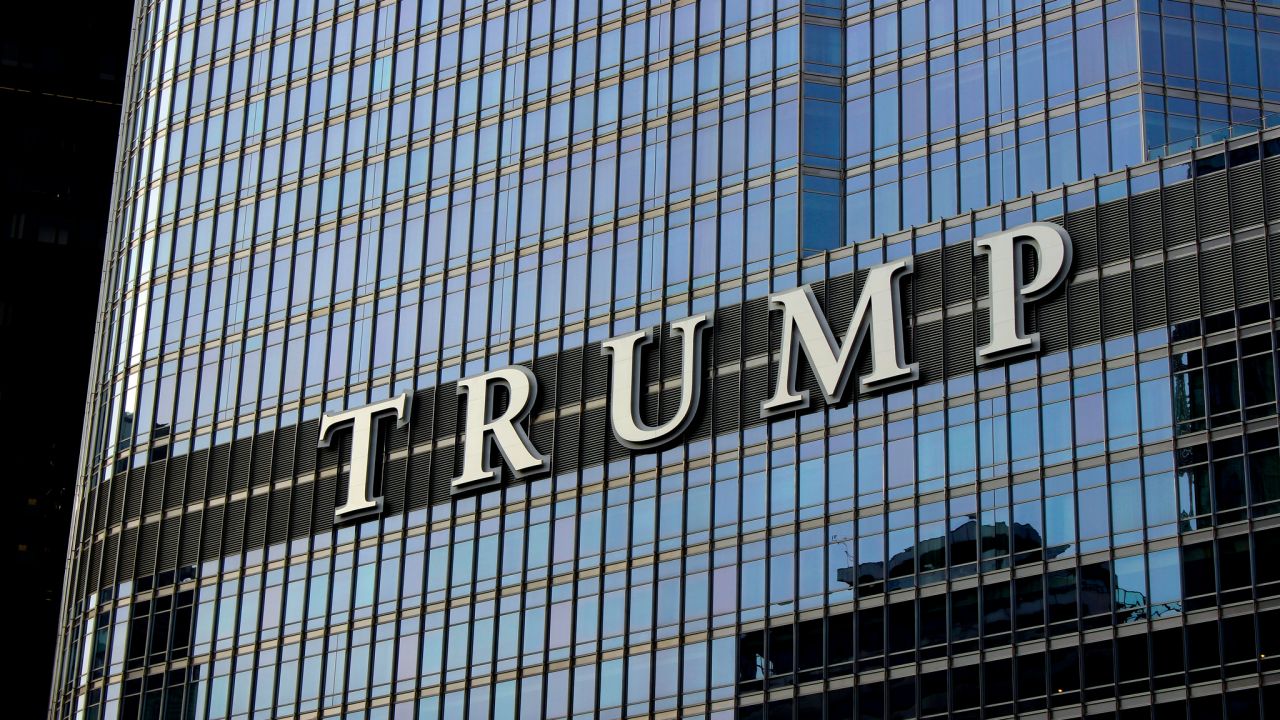
Trump Tower in Chicago. (Photo by Daniel Huizinga / Flickr CC 2.0)
— Thomas Paine, Common Sense (1776)
Paine’s line should resonate with former White House attorney Fred Fielding. As deputy and associate counsel to President Richard Nixon during Watergate, he witnessed the truly alarming spectacle of a president undermining the office’s integrity. Donald Trump must be giving Fielding unpleasant flashbacks. All of Trump’s scandals — from Russia to his business conflicts — are on track to coalesce in the definitive crisis for American democracy.
About Those Conflicts
As foreign countries seek to curry Trump’s favor, his Washington, DC hotel gets the most attention. But it’s a symbol of larger problems. Trump’s business holdings rumble beneath every presidential decision. Sometimes they bubble to the surface.
The most obvious example is Russia. It’s impossible to divorce Trump’s infatuation with Vladimir Putin from his persistent efforts over the past three decades to develop business in that country. As recently as November 2013, Trump boasted: “TRUMP TOWER-MOSCOW is next.”
But Russia is just one of many conflicts between Trump’s business interests and his presidential responsibilities. The unconstitutional ban on immigrant travel to the US from seven (now reduced to six) Muslim-majority Middle Eastern countries — none of which produced a terrorist who killed anyone on American soil — excludes five Mideast nations where the Trump Organization has done business, including:
- Saudi Arabia, Osama Bin Laden’s birthplace and the home of more terrorists who have attacked the United States than any other country;
- The U.A.E., which includes Dubai, where Trump has two golf club projects, and Abu Dhabi, whose Tourism & Culture Authority is a Trump Tower tenant;
- Turkey, where Trump has what he calls a “major, major building in Istanbul”; and
- Azerbaijan, where the Trump International Hotel & Tower Baku was built but never opened. According to legal experts, that project should have raised numerous Trump Organization red flags relating to involvement of the country’s oligarchs, connections to the Iranian Revolutionary Guard and potential violations of the Foreign Corrupt Practices Act.
The first lawsuit on Emoluments Clause issues offers a sample of Trump’s additional foreign entanglements:
- As president-elect, he sought European Parliament member Nigel Farage’s helpin opposing wind farms that would impede views from his Scottish golf course.
- Trump’s business partner in the Philippines is now a special envoy to the United States.
- Trump’s company plans to build 20 to 30 luxury hotels in China, whose government is a business partner in a Trump New York City office building.
- The Industrial and Commercial Bank of China, a government-owned entity, is among Trump Tower’s largest tenants.
The Con
On Jan. 11, 2017, Trump revealed a plan that was supposed to deal with all of this. He trotted out Sheri Dillon and Nixon’s former deputy counsel, Fred Fielding (now 77). Dillon, who did all the talking, invoked Fielding’s reputation as a legal adviser to presidents: “Mr. Fielding has been extensively involved with and approved this plan.”
Except as a public relations ploy, Fielding’s imprimatur is meaningless. Immediately after Trump’s press conference, the director of the Office of Government Ethics, Walter Shaub, spoke on behalf of the American people: “[T]he plan does not comport with the tradition of our Presidents over the past 40 years.”
Across the political spectrum, legal experts agreed: Trump’s conflicts plan is a sham.
- Trump’s two adult sons and a current Trump executive now control his businesses. They get input from “ethics adviser” Bobby Burchfield, a longtime Republican insider and partner at the King & Spalding law firm. Burchfield serves as chair of Crossroads GPS, which Karl Rove co-founded. It collects “dark money — meaning its donors remain secret.
- Trump still owns his businesses through a “revocable trust,” a standard estate-planning tool that wealthy individuals use to avoid probating assets at death while retaining the benefits of ownership during life. Functionally, Harvard Law School Professor Robert H. Sitkoff observes, the trust beneficiary — here, Donald Trump — remains the owner.
- The trust isn’t “blind.” Trump sees periodic reports of how much money he’s making.
- A new “chief compliance counsel” is supposed to “ensure that Trump Organization businesses operate at the highest levels of integrity and are not taking any actions that actually exploit, or even could be perceived as exploiting, the office of the presidency.” For that role, company designated George Sorial, a Trump executive since 2007. He blew his assignment when, shortly before Trump announced his US Supreme Court nominee, Trump’s sons greeted senators at the White House. (More on the plan’s legal flaws here, here and here.)
The Plan at Work
Every day, Trump violates a core principle of the US Constitution — that foreign states should be unable to buy influence over any government official, much less the president. Domestically, his conflicts are equally troublesome. Two weeks after the election, he told The New York Times, “The brand is certainly a hotter brand than it was before.” Thanks to the illusory constraints of the Dillon/Fielding plan, Trump is making the most of it.
His extensive biography remains prominent on the Trump Organization website, ending with this sentence: “On Jan. 20, 2017, Mr. Trump was sworn in as the 45th President of the United States….”
- Jan. 14: The Guardian reported that the Trump Organization would proceed with multimillion-dollar plans to expand a boutique hotel and build another 18-hole course at the Trump International Golf Course Scotland in Aberdeenshire. “Implementing future phasing of existing properties does not constitute a new transaction, so we intend to proceed,” a Trump spokesman said.
- Jan. 25: Bloomberg reported that Trump Hotels CEO Eric Danziger saw no reason why the chain couldn’t expand from its current presence in five major US metropolitan areas to all 26.
- Feb. 4: The American Red Cross, which is subject to government oversight, held its annual ball at Mar-a-Lago. After Trump’s election, the membership fee for the club doubled to $200,000.
- Feb. 8: The Defense Department was looking for lease space in Trump Tower to support operations when he is in New York.
- Feb. 10: The Trump Organization revived a long-dormant licensing deal in the Dominican Republic.
- Feb. 11: Trump hosted Japanese Prime Minister Shinzo Abe at Mar-a-Lago. Trump asserted that he was hosting Abe and his wife as a “gift,” but it’s unclear whether his largesse extended to the entourage accompanying both world leaders to Florida.
- Feb. 16: Trump finally prevailed in his decade-long quest to secure trademark rights in China.
- Feb. 18: Eric and Donald Trump Jr. opened Trump International Golf Club, Dubai.
- Feb. 28: Trump’s sons opened the Trump International Hotel and Tower in Vancouver, BC.
- March 6: China granted the Trump Organization provisional approval to 38 new trademarks for which it applied in April 2016, when Trump was railing against that country’s trade policies. The trademarks ranged from hotels and golf clubs to bodyguard and concierge services. A prominent Hong Kong intellectual property consultant said, “For all these marks to sail through so quickly and cleanly, with no similar marks, no identical marks, no issues with specifications — boy, it’s weird.”
And when it comes to exploiting his office, Trump is a family man. On Feb. 8, Trump blasted Nordstrom for dropping Ivanka’s fashion line. The next morning, counselor to the president Kellyanne Conway took a cue from her boss and violated federal ethics rules with a Fox & Friends appearance plugging Ivanka’s “stuff”: “I’m going to give it a free commercial here. Go buy it today everybody. You can find it online.” For that, Conway received “counseling.”
The Challenge
Sinister forces of corruption have clear pathways to a president who embraces their arrival. We, the people, must send a message to Republican senators who will determine the fate of the republic. Based on their cautious approach to candidate Trump, the most receptive are likely to be: Maine’s Susan Collins; Colorado’s Cory Gardner; Nevada’s Dean Heller; South Carolina’s Lindsey Graham; Arizona’s John McCain and Jeff Flake; Utah’s Mike Lee; Alaska’s Lisa Murkowski and Dan Sullivan; Ohio’s Rob Portman; and Nebraska’s Ben Sasse. Sens. Heller and Flake are up for re-election in 2018. So is Tennessee’s Bob Corker, chair of the Senate Foreign Relations Committee. He’s responsible for assuring that Trump’s business conflicts are not distorting America’s foreign policy.
In addition to Step 3’s message urging Congress to establish a bipartisan commission investigating Putin’s role in Trump’s victory, send this:
“Trump’s business conflicts undermine the presidency. For the sake of the country, stand up for democracy.”
In a 1985 interview, Fred Fielding reflected:
“Every time I think that the lesson of Watergate is a permanent legacy, someone turns around and does something so stupid that I realize that there is never a universal lesson to learn from anything. I guess history does have to repeat sometimes.”
Call, write, visit. At anti-Trump protests, add this banner: “Presidential corruption matters.” Maybe Fred Fielding will see it.
This is part of a series by Steven Harper. Read the other posts in the series: Trump Resistance Plan.




